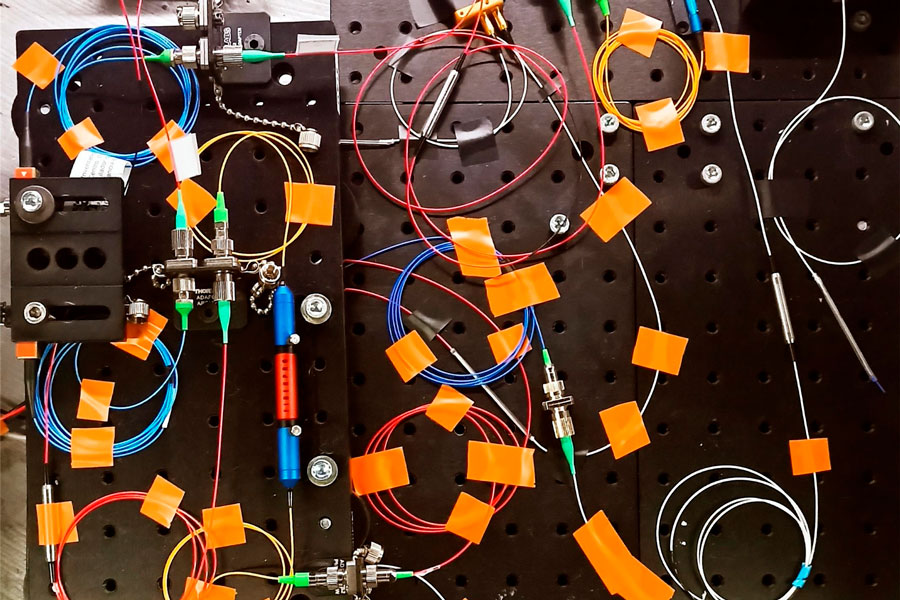Learning computational tricks from neurons
University of Göttingen coordinates new European research project on ultra-fast, fibre-optic technology.

Image detail of the experimental setup of the dendritic components of ADOPD. It consists of light conductors (rolled up), connectors (silver) and optical computing components (colored or black). © Ingo Fischer, Apostolos Argyris
/PUG/ The University of Göttingen will lead the new European project “Adaptive Optical Dendrites (ADOPD)” for research into alternative, ultra-fast computer components based on neuronal signalling systems. The project, led by Professor Florentin Wörgötter and Dr Christian Tetzlaff from the Institute of Physics, focusses on how the functioning of neuronal cells can be transferred to fibre-optic-based computer components. The University of Göttingen will receive funding of around 750,000 euros over three years.
Currently, fibre-optic technology is mainly used for fast data transmission. What is less well known is that fibre optics and other optical components can also be used for very high speed calculations. Another advantage of using fibre optics is their very low energy consumption: they consume less than a hundredth of the energy required by conventional computer components. To bring the different components together optimally, the ADOPD project uses structures based on the function of neurons.
“Our neuronal cells have a complex structure,” says Wörgötter, “and a lot of computing work in neurons takes place at the highly branched, tree-like structure known as the dendrite,” he explains. “The cell then sends signals further into the neuronal network.” The dendrite is the place where all incoming signals to the cell are recorded and initially processed together. These computational operations enable the neurons to carry out efficient signal pre-processing and, thus, simplify complex functions. “This is necessary, for example, in the control of behaviour and cognitive processes,” explains Tetzlaff.
Neuroscientists from Göttingen and Graz University of Technology will collaborate with experts from Spain (Universitat de les Illes Balears and the Agencia Estatal Consejo Superior de Investigaciones Cientificas, Mallorca). Professor Hui Cao from the University of Yale is also a project partner from the USA, who further strengthens the research with her expertise in complex fibre optic technologies. The plan is to transfer the dendrite’s computational tricks to optical computer structures. The technical function will be achieved with support from the company Leoni Fibre Optics GmbH (Berlin). The total budget for the project is around 2.8 million euros.




